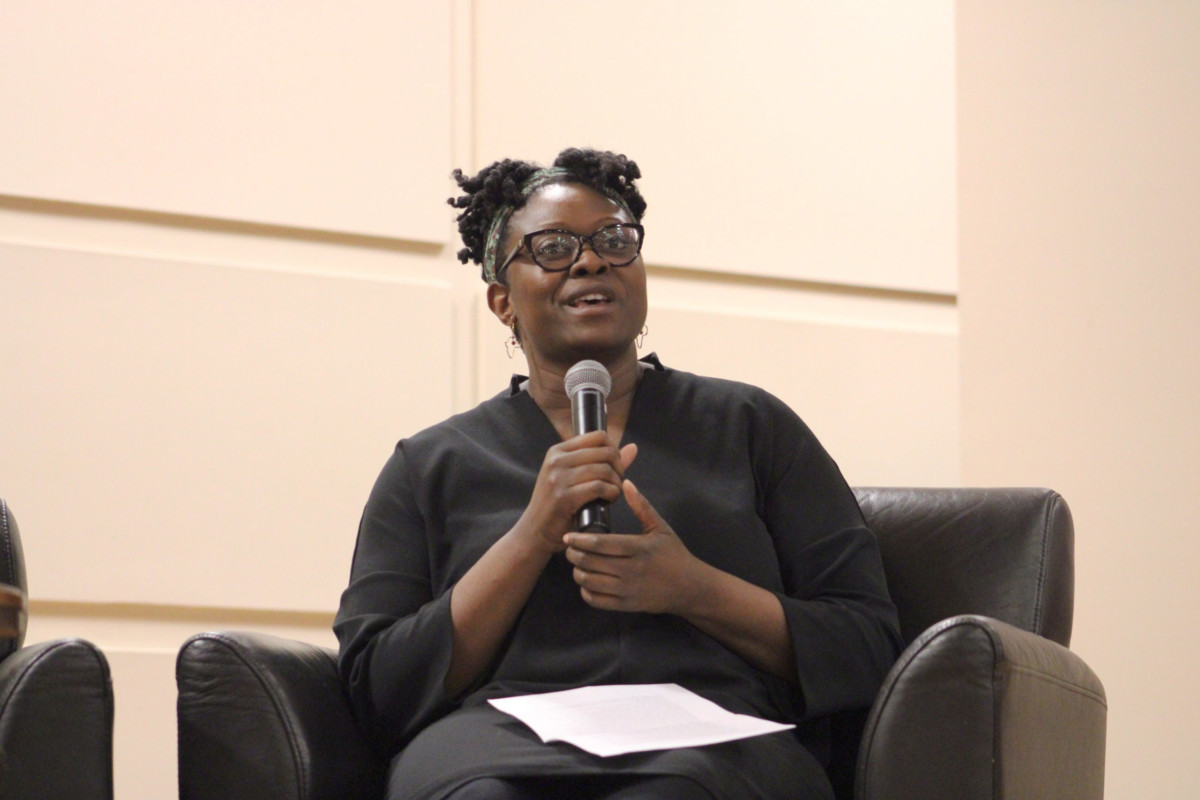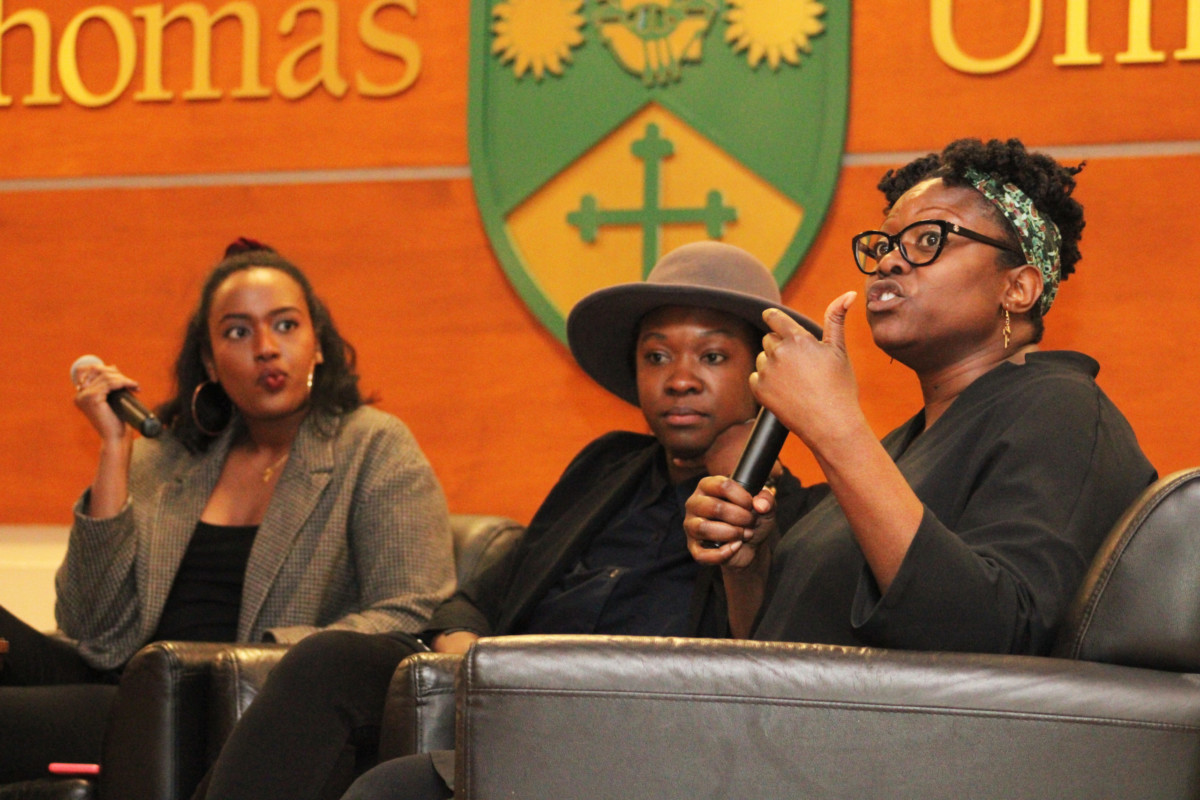The St. Thomas University’s Black Students’ Association held its first official event for this year’s Black History Month celebration on Feb. 13.
The panel featured writer and University of Toronto doctoral student Huda Hassan, writer Canisia Lubrin and University of New Brunswick professor Funké Aladejebi. It focused on the topic of Blackness in Canada and gave students the chance to speak about their concerns as Black people in university.
“Much of what I do at UNB and what I talk about focuses on blackness and what it means to be a person of African descent in Canada,” said Aladejebi.
She said that when we think of Blackness, we think of either the slave trade, the underground railway or immigration. However, according to Adadejebi, these do not give in to the Canadian national narrative.

The challenges faced such as racism, discrimination, economic struggle and finding your way up the social ladder aren’t usually included in the narrative.
“All of these narratives don’t give space to the complexity of what it means to exist,” she said.
The panel also discussed intersectionality, the overlapping of two groups that experience racism or are disadvantaged, such as Black women’s role in both the civil rights and women’s rights movement.
Both panelists Hassan and Aladejebi mentioned Kimberle Crenshaw, the creator of the term, intersectionality. They explained how Black men and white women were thought to be the only ones at the forefront of the civil rights and women’s rights movement in North American history. This meant Black women were not given space in these movements, but rather, erased from this historical era due to the lack of awareness and opportunity given to them.
Other topics such as dealing with stereotypes and how to handle one’s mental health as a Black person were discussed in the panel. Raymond, the STU Students’ Union president and moderator of the panel, said sometimes, as a Black student, while moving to a new place like Canada, one may feel the need to try and fit in due to the differences in cultures and experiences.
“You’re supposed to act this way or that way, you don’t wanna be isolated because of who you are. So there is an expectation that you have to perform to fit into what the standard decent black boy is.”
Raymond said the panel was engaging.
“I hope that people were enlightened and got some insight on what it means to be a Black person living in Canada, and hopefully it will help them learn how to become either effective allies or how they can help make a difference and make our campus and our community.”

